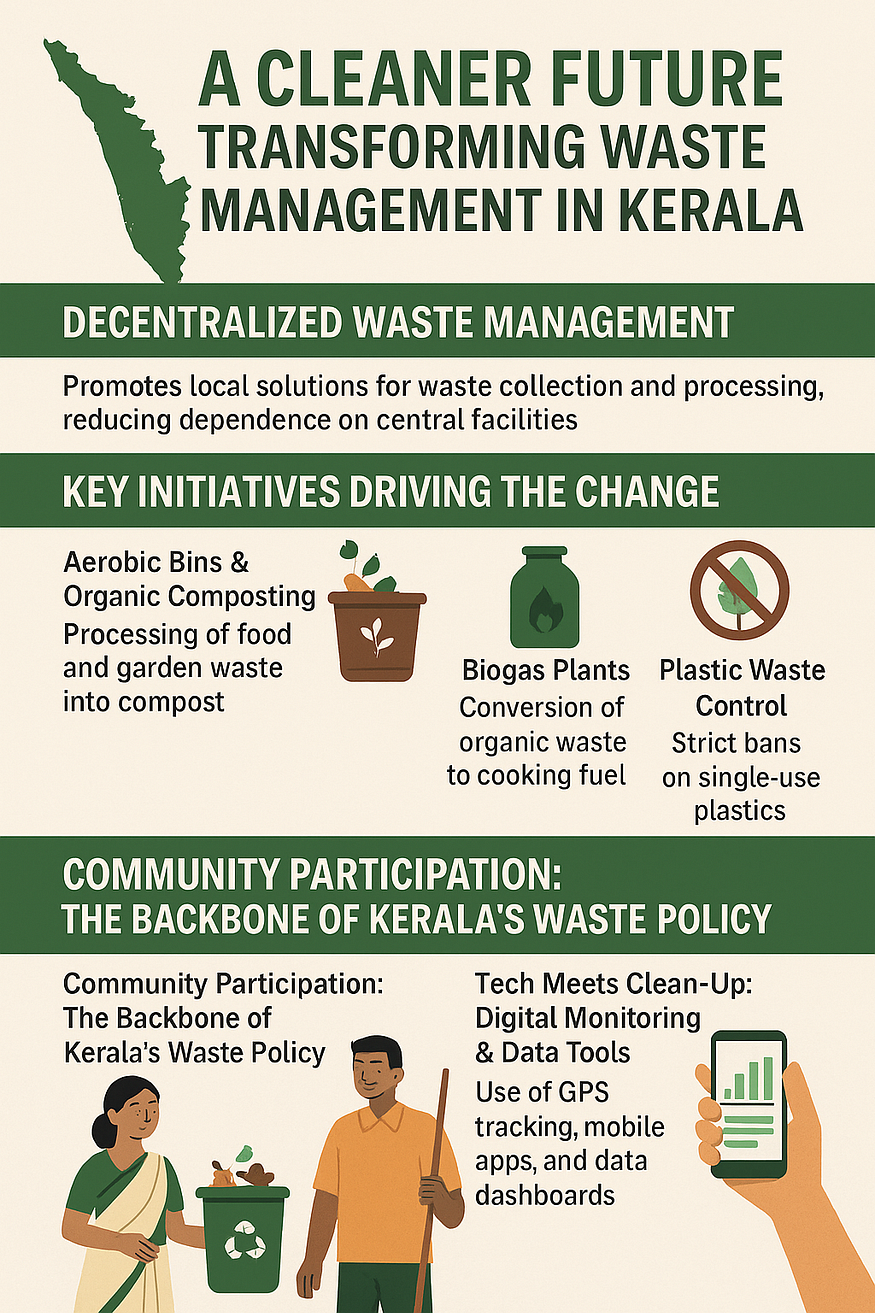A Cleaner Future: Transforming Waste Management in Kerala

In recent years, waste management in Kerala has undergone a remarkable transformation. Once burdened with growing landfills and poor waste disposal practices, the state is now a frontrunner in sustainable waste solutions, thanks to a mix of innovative technologies, community participation, and strong policy support.
The Shift Toward Decentralized Waste Management
Kerala has embraced a decentralized waste management model — one that encourages each household, ward, and municipality to manage waste locally. Rather than relying on massive central landfills, small-scale treatment plants and composting units are being established across the state.
Key Initiatives Driving the Change
- Aerobic Bins & Organic Composting
Urban areas now use aerobic compost bins to process food and garden waste, turning it into valuable compost that supports local agriculture. - Biogas Plants
Households, schools, and markets are installing biogas units that convert organic waste into cooking fuel, reducing dependence on LPG and firewood. - Material Recovery Facilities (MRFs)
Segregated dry waste is sent to MRFs where it is sorted, recycled, and processed, creating income for local workers and reducing landfill load. - Plastic Waste Control
Strict plastic bans and extended producer responsibility (EPR) policies have reduced single-use plastic drastically, encouraging businesses to adopt sustainable packaging.
Community Participation: The Backbone of Kerala’s Waste Policy
What makes waste management in Kerala truly effective is the active role played by citizens. Local residents are encouraged to:
- Practice source segregation (separating wet and dry waste at home)
- Participate in clean-up drives organized by local bodies
- Use kitchen compost bins for daily biodegradable waste
- Attend workshops on zero-waste living and eco-friendly alternatives
Tech Meets Clean-Up: Digital Monitoring & Data Tools
Many municipalities have adopted GPS-enabled garbage collection, mobile tracking apps, and real-time data dashboards to monitor progress and ensure transparency in waste collection and processing.
Kerala’s Model Cities & Awards
Cities like Alappuzha, Thiruvananthapuram, and Kochi have been recognized nationally and internationally for their waste management systems. Alappuzha, in particular, was featured by the United Nations Environment Programme (UNEP) as one of the top five clean cities in the world using decentralized solid waste management.
Challenges Ahead
Despite the progress, Kerala still faces challenges like:
- Inconsistent segregation practices in rural belts
- Limited awareness in tourist-heavy areas
- Need for better hazardous waste disposal systems
With continued education and infrastructure upgrades, these gaps can be bridged.
Conclusion
The evolution of waste management in Kerala showcases how a focused, community-driven, and tech-backed approach can lead to cleaner, more livable cities. As Kerala continues to innovate and inspire, it sets a powerful example for the rest of India and beyond — a vision of a zero-waste future grounded in local action and global responsibility.

Comments
Post a Comment